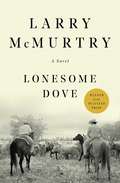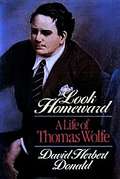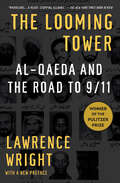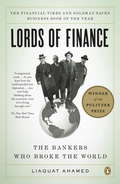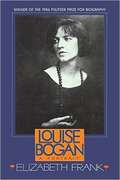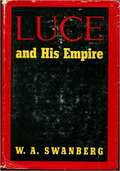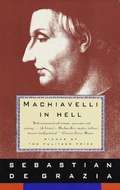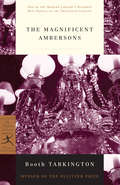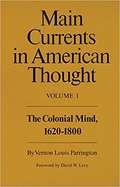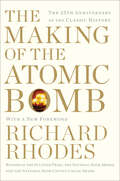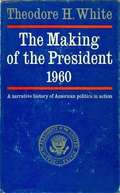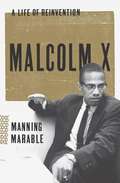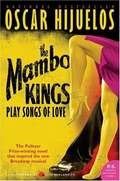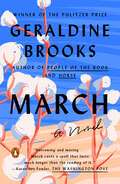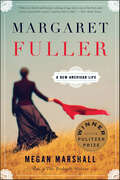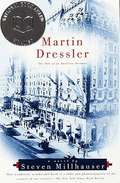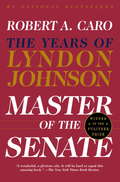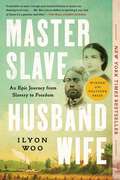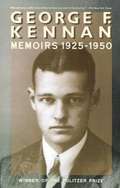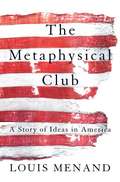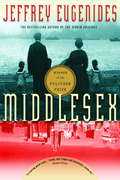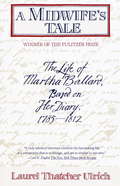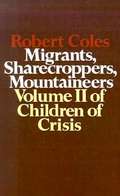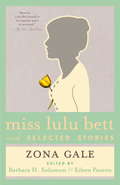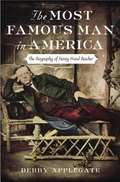Special Collections
Pulitzer Prize Award Winners
Description: Bookshare is pleased to offer the following titles, winners of the Pulitzer Prize Award. Note: Some drama winners are available and are listed under Fiction awards. #award
- Table View
- List View
Lonesome Dove
by Larry McmurtryA love story, an adventure, and an epic of the frontier, Larry McMurtry's Pulitzer Prize-- winning classic, Lonesome Dove, the third book in the Lonesome Dove tetralogy, is the grandest novel ever written about the last defiant wilderness of America.
Journey to the dusty little Texas town of Lonesome Dove and meet an unforgettable assortment of heroes and outlaws, whores and ladies, Indians and settlers.
Richly authentic, beautifully written, always dramatic, Lonesome Dove is a book to make us laugh, weep, dream, and remember.
Look Homeward
by David Herbert DonaldThomas Wolfe, one of the giants of twentieth-century American fiction, is also one of the most misunderstood of our major novelists. A man massive in his size, his passions, and his gifts, Wolfe has long been considered something of an unconscious genius, whose undisciplined flow of prose was shaped into novels by his editor, the celebrated Maxwell Perkins.
Pulitzer Prize Winner
The Looming Tower
by Lawrence WrightUPDATED AND WITH A NEW AFTERWORD
gripping narrative that spans five decades, The Looming Tower explains in unprecedented detail the growth of Islamic fundamentalism, the rise of al-Qaeda, and the intelligence failures that culminated in the attacks on the World Trade Center. Lawrence Wright re-creates firsthand the transformation of Osama bin Laden and Ayman al-Zawahiri from incompetent and idealistic soldiers in Afghanistan to leaders of the most successful terrorist group in history. He follows FBI counterterrorism chief John O'Neill as he uncovers the emerging danger from al-Qaeda in the 1990s and struggles to track this new threat. Packed with new information and a deep historical perspective, The Looming Tower is the definitive history of the long road to September 11.
Pulitzer Prize Winner
Lords of Finance
by Liaquat AhamedWinner of the 2010 Pulitzer PrizeWith penetrating insights for today, this vital history of the world economic collapse of the late 1920s offers unforgettable portraits of the four men whose personal and professional actions as heads of their respective central banks changed the course of the twentieth centuryIt is commonly believed that the Great Depression that began in 1929 resulted from a confluence of events beyond any one person?s or government?s control. In fact, as Liaquat Ahamed reveals, it was the decisions taken by a small number of central bankers that were the primary cause of the economic meltdown, the effects of which set the stage for World War II and reverberated for decades.In Lords of Finance, we meet the neurotic and enigmatic Montagu Norman of the Bank of England, the xenophobic and suspicious Émile Moreau of the Banque de France, the arrogant yet brilliant Hjalmar Schacht of the Reichsbank, and Benjamin Strong of the Federal Reserve Bank of New York, whose façade of energy and drive masked a deeply wounded and overburdened man. After the First World War, these central bankers attempted to reconstruct the world of international finance. Despite their differences, they were united by a common fear?that the greatest threat to capitalism was inflation? and by a common vision that the solution was to turn back the clock and return the world to the gold standard.For a brief period in the mid-1920s they appeared to have succeeded. The world?s currencies were stabilized and capital began flowing freely across the globe. But beneath the veneer of boom-town prosperity, cracks started to appear in the financial system. The gold standard that all had believed would provide an umbrella of stability proved to be a straitjacket, and the world economy began that terrible downward spiral known as the Great Depression.As yet another period of economic turmoil makes headlines today, the Great Depression and the year 1929 remain the benchmark for true financial mayhem. Offering a new understanding of the global nature of financial crises, Lords of Finance is a potent reminder of the enormous impact that the decisions of central bankers can have, of their fallibility, and of the terrible human consequences that can result when they are wrong.
Louise Bogan
by Elizabeth FrankA full-scale biography of the distinguished lyric poet, translator, and critic details the highs and lows of her elegant and sorrowful life and the steady growth and influence of her work.
Winner of the 1986 Pulitzer Prize for Biography.
Luce and His Empire
by W. A. SwanbergHenry Luce started Time magazine in the 1940's and went on to create a media empire. He married Clare Booth Luce who became ambassador to Italy.
Pulitzer Prize Winner
Machiavelli in Hell
by Sebastian De GraziaIn this intellectual biography, de Grazia presents a new vision of Niccolo Machiavelli that evokes the great Florentine thinker's presence. After giving an engrossing account of Machiavelli's childhood and period of personal crisis that followed his imprisonment and torture, the book turns to an examination of The Prince.
Pulitzer Prize Winner
The Magnificent Ambersons
by Booth TarkingtonSelected by the Modern Library as one of the 100 best novels of all time
The Magnificent Ambersons chronicles the changing fortunes of three generations of an American dynasty. The protagonist of Booth Tarkington's great historical drama is George Amberson Minafer, the spoiled and arrogant grandson of the founder of the family's magnificence. Eclipsed by a new breed of developers, financiers, and manufacturers, this pampered scion begins his gradual descent from the midwestern aristocracy to the working class.
Today The Magnificent Ambersons is best known through the 1942 Orson Welles movie, but as the critic Stanley Kauffmann noted, "It is high time that [the novel] appear again, to stand outside the force of Welles's genius, confident in its own right."
"The Magnificent Ambersons is perhaps Tarkington's best novel," judged Van Wyck Brooks. "[It is] a typical story of an American family and town--the great family that locally ruled the roost and vanished virtually in a day as the town spread and darkened into a city. This novel no doubt was a permanent page in the social history of the United States, so admirably conceived and written was the tale of the Ambersons, their house, their fate and the growth of the community in which they were submerged in the end."
Winner of the Pulitzer Prize when it was first published in 1918,
Main Currents in American Thought
by Vernon Louis ParringtonAnalysis of how our scholarship developed.
Pulitzer Prize Winner
The Making of the Atomic Bomb
by Richard Rhodes**Winner of the Pulitzer Prize, the National Book Award, and the National Book Critics Circle Award** The definitive history of nuclear weapons—from the turn-of-the-century discovery of nuclear energy to J. Robert Oppenheimer and the Manhattan Project—this epic work details the science, the people, and the sociopolitical realities that led to the development of the atomic bomb.This sweeping account begins in the 19th century, with the discovery of nuclear fission, and continues to World War Two and the Americans’ race to beat Hitler’s Nazis. That competition launched the Manhattan Project and the nearly overnight construction of a vast military-industrial complex that culminated in the fateful dropping of the first bombs on Hiroshima and Nagasaki.Reading like a character-driven suspense novel, the book introduces the players in this saga of physics, politics, and human psychology—from FDR and Einstein to the visionary scientists who pioneered quantum theory and the application of thermonuclear fission, including Planck, Szilard, Bohr, Oppenheimer, Fermi, Teller, Meitner, von Neumann, and Lawrence. From nuclear power’s earliest foreshadowing in the work of H.G. Wells to the bright glare of Trinity at Alamogordo and the arms race of the Cold War, this dread invention forever changed the course of human history, and The Making of The Atomic Bomb provides a panoramic backdrop for that story. Richard Rhodes’s ability to craft compelling biographical portraits is matched only by his rigorous scholarship. Told in rich human, political, and scientific detail that any reader can follow, The Making of the Atomic Bomb is a thought-provoking and masterful work.
The Making of the President, 1960
by Theodore H. WhiteThe greatest political story ever told—the epic clash between John F. Kennedy and Richard M. Nixon, as captured in Theodore White's dramatic and groundbreaking chronicle
The Making of the President 1960 is the book that revolutionized—even created—modern political journalism. Granted intimate access to all parties involved, Theodore White crafted an almost mythic story of the battle that pitted Senator John F. Kennedy against Vice-President Richard M. Nixon—from the decisive primary battles to the history-making televised debates, the first of their kind. Magnificently detailed and exquisitely paced, The Making of the President 1960 imbues the nation's presidential election process with both grittiness and grandeur, and established a benchmark against which all new campaign reporters would measure their work.
Pulitzer Prize Winner
Malcolm X
by Manning MarableSelected by The New York Times Book Review as a Notable Book of the Year Years in the making-the definitive biography of the legendary black activist. Of the great figure in twentieth-century American history perhaps none is more complex and controversial than Malcolm X. Constantly rewriting his own story, he became a criminal, a minister, a leader, and an icon, all before being felled by assassins' bullets at age thirty-nine. Through his tireless work and countless speeches he empowered hundreds of thousands of black Americans to create better lives and stronger communities while establishing the template for the self-actualized, independent African American man. In death he became a broad symbol of both resistance and reconciliation for millions around the world. Manning Marable's new biography of Malcolm is a stunning achievement. Filled with new information and shocking revelations that go beyond the Autobiography, Malcolm X unfolds a sweeping story of race and class in America, from the rise of Marcus Garvey and the Ku Klux Klan to the struggles of the civil rights movement in the fifties and sixties. Reaching into Malcolm's troubled youth, it traces a path from his parents' activism through his own engagement with the Nation of Islam, charting his astronomical rise in the world of Black Nationalism and culminating in the never-before-told true story of his assassination. Malcolm X will stand as the definitive work on one of the most singular forces for social change, capturing with revelatory clarity a man who constantly strove, in the great American tradition, to remake himself anew.
The Mambo Kings Play Songs of Love
by Óscar HijuelosIt's 1949 and two young Cuban musicians make their way up from Havana to the big arena of New York, where they are workers by day, stars of dance halls by night. Hijuelos's marvelous portrait of the Castillo brothers, their families, their fellow musicians and lovers, their triumphs and tragedies, re-creates the sights and sounds of an era in music and an unsung moment in American life.
Pulitzer Prize Winner
March
by Geraldine BrooksFrom Louisa May Alcott's beloved classic Little Women, Geraldine Brooks has animated the character of the absent father, March, and crafted a story "filled with the ache of love and marriage and with the power of war upon the mind and heart of one unforgettable man" (Sue Monk Kidd). With "pitch-perfect writing" (USA Today), Brooks follows March as he leaves behind his family to aid the Union cause in the Civil War. His experiences will utterly change his marriage and challenge his most ardently held beliefs.
Pulitzer Prize Winner
Margaret Fuller
by Megan MarshallWinner of the Pulitzer Prize for BiographyFrom an early age, Margaret Fuller provoked and dazzled New England’s intellectual elite. Her famous Conversations changed women’s sense of how they could think and live; her editorship of the Transcendentalist literary journal the Dial shaped American Romanticism. Now, Megan Marshall, whose acclaimed The Peabody Sisters “discovered” three fascinating women, has done it again: no biography of Fuller has made her ideas so alive or her life so moving. Marshall tells the story of how Fuller, tired of Boston, accepted Horace Greeley’s offer to be the New-York Tribune’s front-page columnist. The move unleashed a crusading concern for the urban poor and the plight of prostitutes, and a late-in-life hunger for passionate experience. In Italy as a foreign correspondent, Fuller took a secret lover, a young officer in the Roman Guard; she wrote dispatches on the brutal 1849 Siege of Rome; and she gave birth to a son. Yet, when all three died in a shipwreck off Fire Island shortly after Fuller’s fortieth birthday, the sense and passion of her life’s work were eclipsed by tragedy and scandal. Marshall’s inspired account brings an American heroine back to indelible life.
Martin Dressler
by Steven MillhauserYoung Martin Dressler begins his career as an industrious helper in his father's cigar store. In the course of his restless young manhood, he makes a swift and eventful rise to the top, accompanied by two sisters--one a dreamlike shadow, the other a worldly business partner. As the eponymous Martin's vision becomes bolder and bolder he walks a haunted line between fantasy and reality, madness and ambition, art and industry, a sense of doom builds piece-by-hypnotic piece until this mesmerizing journey into the heart of an American dreamer reaches its bitter-sweet conclusion.
Pulitzer Prize Winner
Master of the Senate
by Robert A. CaroThe most riveting political biography of our time, Robert A. Caro's life of Lyndon B. Johnson, continues. Master of the Senate takes Johnson's story through one of its most remarkable periods: his twelve years, from 1949 through 1960, in the United States Senate. Once the most august and revered body in politics, by the time Johnson arrived the Senate had become a parody of itself and an obstacle that for decades had blocked desperately needed liberal legislation. Caro shows how Johnson's brilliance, charm, and ruthlessness enabled him to become the youngest and most powerful Majority Leader in history and how he used his incomparable legislative genius--seducing both Northern liberals and Southern conservatives--to pass the first Civil Rights legislation since Reconstruction. Brilliantly weaving rich detail into a gripping narrative, Caro gives us both a galvanizing portrait of Johnson himself and a definitive and revelatory study of the workings of legislative power.
Winner of the National Book Award
Winner of the Pulitzer Prize
Master Slave Husband Wife
by Ilyon WooWinner of the 2024 Pulitzer Prize in Biography &“A rich narrative of the Crafts, an enslaved couple who escaped from Georgia in 1848, with light-skinned Ellen disguised as a disabled white gentleman and William as her manservant, exploiting assumptions about race, class, and disability to hide in public on their journey to the North, where they became famous abolitionists while evading bounty hunters.&” —The Pulitzer Prizes Named one of the best books of the year by The New York Times, The New Yorker, Time, NPR, Smithsonian Magazine, and Oprah DailyIn 1848, a year of international democratic revolt, a young, enslaved couple, Ellen and William Craft, achieved one of the boldest feats of self-emancipation in American history. Posing as master and slave, while sustained by their love as husband and wife, they made their escape together across more than 1,000 miles, riding out in the open on steamboats, carriages, and trains that took them from bondage in Georgia to the free states of the North.Along the way, they dodged slave traders, military officers, and even friends of their enslavers, who might have revealed their true identities. The tale of their adventure soon made them celebrities, and generated headlines around the country. Americans could not get enough of this charismatic young couple, who traveled another 1,000 miles criss-crossing New England, drawing thunderous applause as they spoke alongside some of the greatest abolitionist luminaries of the day—among them Frederick Douglass and William Wells Brown.But even then, they were not out of danger. With the passage of an infamous new Fugitive Slave Act in 1850, all Americans became accountable for returning refugees like the Crafts to slavery. Then yet another adventure began, as slave hunters came up from Georgia, forcing the Crafts to flee once again—this time from the United States, their lives and thousands more on the line and the stakes never higher.With three epic journeys compressed into one monumental bid for freedom, Master Slave Husband Wife is an American love story—one that would challenge the nation&’s core precepts of life, liberty, and justice for all—one that challenges us even now.
Memoirs (1925-1950)
by George F. KennanThe American diplomat's reflections of his years of government service provide insight into four decades of U.S. policy
Winner of the National Book Award
Pulitzer Prize Winner
The Metaphysical Club
by Louis MenandWinner of the 2002 Pulitzer Prize for History, a riveting, original book about the creation of modern American thought. The Metaphysical Club was an informal group that met in Cambridge, Massachusetts, in 1872, to talk about ideas. Its members included Oliver Wendell Holmes, Jr., future associate justice of the United States Supreme Court; William James, the father of modern American psychology; and Charles Sanders Peirce, logician, scientist, and the founder of semiotics. The Club was probably in existence for about nine months. No records were kept. The one thing we know that came out of it was an idea -- an idea about ideas.
Middlesex
by Jeffrey EugenidesSpanning eight decades and chronicling the wild ride of a Greek-American family through the vicissitudes of the twentieth century, Jeffrey Eugenides' witty, exuberant novel on one level tells a traditional story about three generations of a fantastic, absurd, lovable immigrant family -- blessed and cursed with generous doses of tragedy and high comedy.But there's a provocative twist. Cal, the narrator -- also Callie -- is a hermaphrodite. And the explanation for this takes us spooling back in time, through a breathtaking review of the twentieth century, to 1922, when the Turks sacked Smyrna and Callie's grandparents fled for their lives. Back to a tiny village in Asia Minor where two lovers, and one rare genetic mutation, set our narrator's life in motion.Middlesex is a grand, utterly original fable of crossed bloodlines, the intricacies of gender, and the deep, untidy promptings of desire. It's a brilliant exploration of divided people, divided families, divided cities and nations -- the connected halves that make up ourselves and our world. Justly acclaimed when it was released in Fall 2002, it announces the arrival of a major writer for our times.From the Hardcover edition.
A Midwife's Tale
by Laurel Thatcher UlrichPULITZER PRIZE WINNER • Drawing on the diaries of one woman in eighteenth-century Maine, "A truly talented historian unravels the fascinating life of a community that is so foreign, and yet so similar to our own" (The New York Times Book Review).Between 1785 and 1812 a midwife and healer named Martha Ballard kept a diary that recorded her arduous work (in 27 years she attended 816 births) as well as her domestic life in Hallowell, Maine. On the basis of that diary, Laurel Thatcher Ulrich gives us an intimate and densely imagined portrait, not only of the industrious and reticent Martha Ballard but of her society. At once lively and impeccably scholarly, A Midwife's Tale is a triumph of history on a human scale.
Migrants, Sharecroppers, Mountaineers (Volume 2 of Children of Crisis)
by Robert ColesSince the late 1950's, Robert Coles has been studying, living with, and, above all, listening to the American poor. The result is one of the most vigorous and searching social studies ever undertaken by one man in the United States. Migrants, Sharecroppers, Mountaineers is the second volume in Dr. Coles's award-winning series, Children of Crisis. In it, he listens to three groups: the migrant workers who travel the eastern coast of this country, picking crops day after day; the sharecroppers and tenant farmers who live on isolated southern plantations, just as their ancestors did as slaves; and the mountaineers of Appalachia, whose only choice lies between coal mining and starvation.
Pulitzer Prize Winner
Miss Lulu Bett and Selected Stories
by Zona GaleLulu Bett lives in a small town with her sister Ina and Ina's husband Dwight-a dentist who rules his household with self-righteous smugness. The unmarried Lulu has learned that she cannot question her role as chief cook, housekeeper, and gracious presence. But when Dwight's sophisticated brother Ninian comes to visit, Lulu finds in herself a surprising wit-and the boldness to accept his playful proposal of marriage. Through her appealing, determined heroine, Zona Gale satirically dispatches a sheaf of the social assumptions of her day, from male supremacy to the security of marriage. First published in 1920, Miss Lulu Bett was immediately acclaimed, and went on to become one of two bestselling novels of the year. Together with four of Gale's short stories-including the O. Henry award-winning "Bridal Pond"-Miss Lulu Bett reflects Gale's broad progressive interests and the fast-paced, affecting prose which made her one of the most popular writers of her time and a classic American storyteller.
Pulitzer Prize Winner
The Most Famous Man in America
by Debby ApplegateNo one predicted success for Henry Ward Beecher at his birth in 1813. The blithe, boisterous son of the last great Puritan minister, he seemed destined to be overshadowed by his brilliant siblings—especially his sister, Harriet Beecher Stowe, who penned the century’s bestselling book Uncle Tom’s Cabin. But when pushed into the ministry, the charismatic Beecher found international fame by shedding his father Lyman's Old Testament–style fire-and-brimstone theology and instead preaching a New Testament–based gospel of unconditional love and healing, becoming one of the founding fathers of modern American Christianity. By the 1850s, his spectacular sermons at Plymouth Church in Brooklyn Heights had made him New York’s number one tourist attraction, so wildly popular that the ferries from Manhattan to Brooklyn were dubbed “Beecher Boats.”
Beecher inserted himself into nearly every important drama of the era—among them the antislavery and women’s suffrage movements, the rise of the entertainment industry and tabloid press, and controversies ranging from Darwinian evolution to presidential politics. He was notorious for his irreverent humor and melodramatic gestures, such as auctioning slaves to freedom in his pulpit and shipping rifles—nicknamed “Beecher’s Bibles”—to the antislavery resistance fighters in Kansas. Thinkers such as Emerson, Thoreau, Whitman, and Twain befriended—and sometimes parodied—him.
And then it all fell apart. In 1872 Beecher was accused by feminist firebrand Victoria Woodhull of adultery with one of his most pious parishioners. Suddenly the “Gospel of Love” seemed to rationalize a life of lust. The cuckolded husband brought charges of “criminal conversation” in a salacious trial that became the most widely covered event of the century, garnering more newspaper headlines than the entire Civil War. Beecher survived, but his reputation and his causes—from women’s rights to progressive evangelicalism—suffered devastating setbacks that echo to this day.
Featuring the page-turning suspense of a novel and dramatic new historical evidence, Debby Applegate has written the definitive biography of this captivating, mercurial, and sometimes infuriating figure. In our own time, when religion and politics are again colliding and adultery in high places still commands headlines, Beecher’s story sheds new light on the culture and conflicts of contemporary America.
Pulitzer Prize Winner
